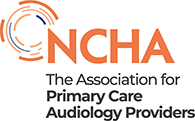29 November 2024
NCHA member update - 29 November
This month:
- Private hearing aid sales recover in third quarter
- Calls for unification at audiology conference
- HCPC tightens rules on language requirements
- Consultation on quality standards in adult services
- Joint statement on hearing aids and dementia
- Bedside deafness tests gets nationwide approval
- Exercise linked to reduced tinnitus
- The importance of hidden hearing loss
- Ears to the ground
- Health policy
Private hearing aid sales recover in third quarter
The British Irish Hearing Instrument Manufacturers Association (BIHIMA) has announced an increase in private hearing aid sales for the third quarter of 2024, both quarterly and annually.
Sales to the private sector rose by 9% compared to the second quarter of 2024 and by nearly 6% versus the same period last year. In contrast, sales to the NHS fell by 6.7% from the previous quarter and by 5% year on year. Read the full story.
Calls for unification at audiology conference
There were calls for greater collaboration within audiology at this year's British Academy of Audiology conference in Telford.
Kevin Munro, audiology professor at Manchester University, shared the stage with clinicians and providers in a question-and-answer session. He said the NHS had passed a tipping point, adding that the profession must stay united to speak with a clear voice. Read more.
Specsavers' director of audiology Gordon Harrison agreed with Prof Munro that unity was essential to keep audiology at the centre of hearing care.
The panel discussion follows a parliamentary event earlier this month, attended by Yasmin Qureshi MP. It called on the government to make NHS-funded hearing care more widely available. Specsavers is also engaging with MLAs in Northern Ireland to address rising unmet hearing needs.
HCPC tightens rules on language requirements
Stricter English language requirements for international applicants to the Health and Care Professions Council register will begin on 29 January 2025.
The changes include:
- Candidates being unable to register based on declaring that English as their first language without providing evidence of having passed an approved test.
- A list of "qualifying" countries where the registrant's primary qualification is considered proof enough of their proficiency in English.
Consultation on quality standards in adult services
The British Academy of Audiology (BAA) is drafting a document entitled 'Quality Standards for Adult Hearing Rehabilitation Services', designed to improve consistency in standards across the profession.
The document, in the form of an assessment and audit tool, is open for consultation and we encourage members to send feedback to [email protected] by 15 December.
Joint statement on hearing aids and dementia
The debate continues over whether hearing aids can help to reduce cognitive decline, following the 2024 Lancet Commission report on dementia prevention, intervention and care, which ranked hearing loss at the top of the list of potentially modifiable risk factors for dementia.
In the latest development, the BAA, the British Society of Audiology (BSA) and the British Society of Hearing Aid Audiologists (BSHAA) have released a 10-page position statement and guidance for clinicians about messaging regarding the likely effect of hearing aids on cognition.
Bedside deafness test gets nationwide approval
Neonatal units across the UK are trialling a genetic test that could prevent newborns losing their hearing if they receive the antibiotic gentamicin as part of their treatment.
Researchers at St Mary's Hospital, part of Manchester University NHS Foundation Trust, developed the rapid 'genedrive' test. In 26 minutes, it can detect if a critically ill baby has a gene change that could result in permanent hearing loss if exposed to the common antibiotic gentamicin. About one in 500 babies carry the gene. Read the full story.
Exercise linked to reduced tinnitus
Researchers in Belgium have found that engaging in moderate or vigorous physical activity for more than 2.5 hours a week could be linked to a reduced risk of tinnitus.
The International Journal of Audiology published the results of the cross-sectional study involving more than 3,000 participants. It showed that individuals who led a sedentary lifestyle had a higher risk of noises in the ears. The underlying mechanisms still need to be fully understood.
The importance of hidden hearing loss
Hearing loss in the highest frequencies can significantly impact listening to noise. Conventional audiograms test hearing between 250Hz and 8000Hz, because these pitches are most important for speech understanding. However, human hearing extends to at least 15,000Hz. Therefore, loss above 8000Hz is often 'hidden' behind the audiogram.
ENT & Audiology News discusses the importance of high frequency hearing for listening in background noise and functional listening ability. It explores the potential value of extended high frequency testing for detecting noise exposure and ototoxicity. Read more.
- BIHIMA is inviting audiologists to participate in a survey of professionals to identify the profession's hot topics. Complete the survey.
- Steve Witts joins Scrivens as its first NHS hearing development manager. Mark Georgevic, Scrivens' director, talks to Audiology World News about primary care audiology.
- SightCare launches an audiology service in partnership with Insight Hearing. It will include wax removal, hearing assessments and real-world technology trials. Read more.
- A report by the Sir Lenny Henry Centre for Media Diversity calls for more support for deaf workers in the film and television industry.
Government names 10 Year Health Plan leaders
The Department of Health and Social Care (DHSC) has confirmed who will lead the 10 Year Health Plan working groups. Of the 11 groups, four will consider the future vision of the NHS and seven will examine areas that need to change to enable that vision.
The NCHA will work with sector partners and members to engage with working groups on behalf of hearing care in England.
NHS red tape challenge extended
NHS England has revealed that the Red Tape challenge launched by the government to help reduce unnecessary bureaucracy will run in two phases: 'listening to feedback' until December and 'testing emerging recommendations' in December and January.
Last month, health secretary Wes Streeting, announced the challenge in which NHSE will ask GPs, hospitals and ICBs what works well and what needs to change.
We welcome any suggestions from members to flag opportunities to cut red tape and costs. Please send feedback to [email protected].
Clinical and non-clinical colleagues, and patients, can feed into this work by completing this short survey or share their feedback and send examples of good practice to: [email protected]. The deadline for submitting views and ideas is 16 December.
Streeting promises to clamp down on failing NHS managers
The health secretary told the NHS Providers Annual Conference Exhibition that very senior managers (VSMs) in England who fail to deliver good services for patients or run up deficits in their trusts could lose their pay increases.
Mr Streeting unveiled the new pay framework for VSMs and other reforms to improve the NHS in England at an NHS Providers conference in Liverpool.
A league table for NHS trusts is also among the 'tough NHS reforms' the DHSC announced. It said NHS England would perform a "no holds barred sweeping review" of performance across the country and update the league table regularly to prioritise improvements.
Net zero progress
The Health Foundation explores how public awareness, understanding and support for a net zero NHS has evolved since the health service committed in 2020 to become net zero by 2045.
A significant proportion of the public remains neutral or unaware of the NHS's contribution to the country's carbon footprint, and less than half of the public believes that it should make reducing its climate impact a top priority.

Press enquiries
Media enquiries should be directed to [email protected] or call 020 7298 5110.
We are happy to put you in touch with our expert policy advisers who can comment on a variety of issues.
You can also follow us on Twitter and LinkedIn.

 Your hearing and aural health
Your hearing and aural health  Commissioners and Policymakers
Commissioners and Policymakers  Member support and guidance
Member support and guidance News and views
News and views
 Hearing map
Hearing map
